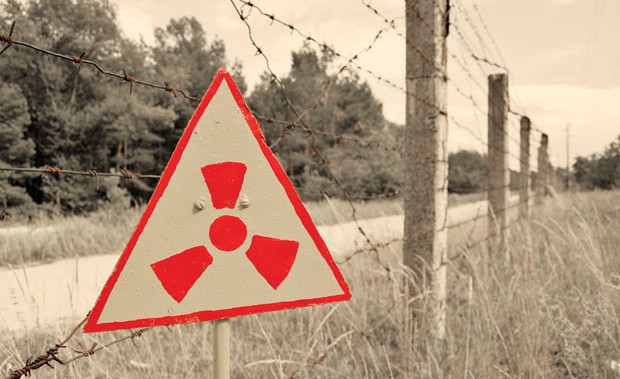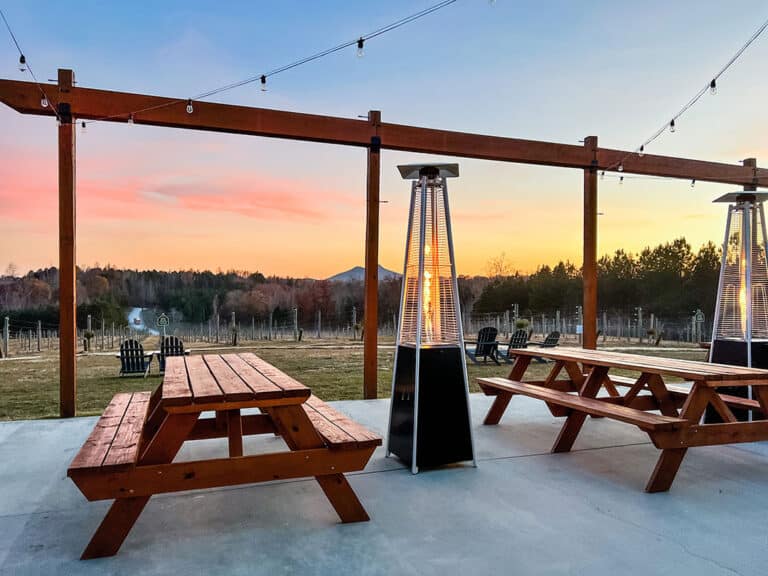An Urban Issue Too
Coles Hill is Virginia Uranium’s only planned mining project, says Wales. If a statewide ban is lifted, though, other companies are bound to seek permission for uranium exploration throughout Virginia.
That means mining could potentially take place within national forests and other public lands. A recent report by the Pew Environment Group says that companies have “carte blanche” to mine in public lands without having to pay royalties because of an 1872 law. Currently, for example, mining companies are trying to expand their access to land near the Grand Canyon, prompting protest from conservation groups and celebrity activists including Robert Redford and Edward Norton.
Mining claims could also potentially be staked not just in rural areas but also in urban and suburban communities.
In the 1980s, dairy farmer Bill Speiden was approached by the Marline Uranium Corp. about his 1,100 acres in Orange County. “They felt they had a real hot spot here,” he said. Speiden and his wife ultimately declined Marline’s offer, skeptical that uranium mining could be done safely in Virginia. At the time, they say, the company was interested in exploring sites believed to be radioactive throughout Northern Virginia as well.
In other words, Speiden insists, residents in densely populated parts of Virginia should pay attention to the uranium mining debate – regardless of which side they find themselves on.
The Tough Decision
Environmental advocates and outdoor enthusiasts worry that the Virginia state legislature could vote on whether or not to lift a ban on uranium mining without allowing time for a public comment period. “You can’t have studies come back in December,” says environmental lawyer Jaffe, “and have legislation introduced before there’s a public discussion on whether legislation should be introduced.”
Virginia Uranium, on the other hand, contends that the public has been involved all along, and will continue to be involved.
“What oftentimes gets overlooked is that every step of the way, regardless of what path is taken, [this process] is done with complete transparency, with the complete involvement of the community,” says project manager Wales.
Lifting the 30-year moratorium on uranium mining could create jobs not just at the Coles Hill site in Pittsylvania County, but potentially all over Virginia. Virginia lawmakers will have to determine whether the risks to public health, the environment, tourism, and the economy itself can be managed well enough to make the benefits worth it.
Because, as Wales says, at the end of the day, “We’re all bound by what path the Virginia legislature takes.”
How do Americans feel about nuclear energy?
Although the U.S. media’s interest seems to have waned, Japan continues to be crippled by a nuclear crisis brought on by a massive earthquake and tsunami this spring. The March disasters hit the Fukushima Daiichi nuclear power plant, causing radiation leaks that the country was not prepared for. Now, the UN atomic safety inspectors say Japan underestimated the risk of natural disasters to its nuclear facilities. The International Atomic Energy Agency has released a report finding that ties between government regulators and the nuclear industry resulted in weak oversight and poor planning.
Since there has been renewed interest in nuclear energy, especially in the South, pollsters have surveyed Americans to find out how they feel about the nuclear industry. Here are some of the major findings:
Do Americans support the building of new nuclear plants? CNN, March 2011 46% support new nuclear power plants. 53% oppose new nuclear power plants.
Do Americans support federal subsidies for the building of new nuclear plants? Wall Street Journal/NBC, February 2011 57% opposed subsidies. 40% supported subsidies.
Are Americans concerned about the management of radioactive waste? Angus Reid Public Opinion, March 2011 81% said they were concerned. 51% said they were very concerned. 16% said they were less concerned. 4% said they were not at all concerned.
Do communities living within 50 miles of a nuclear plant feel prepared for a nuclear emergency? CNN, March 2011 18% said they have disaster kits at home. 82% said they do not have disaster kits.
CNN, March 2011 38% are familiar with evacuation routes. 62% are not familiar with evacuation routes.
Is the U.S. government prepared for a nuclear emergency?
Associated Press, March 2011
27% the government is prepared
41% the government may not be prepared.
32% the government is not prepared.








